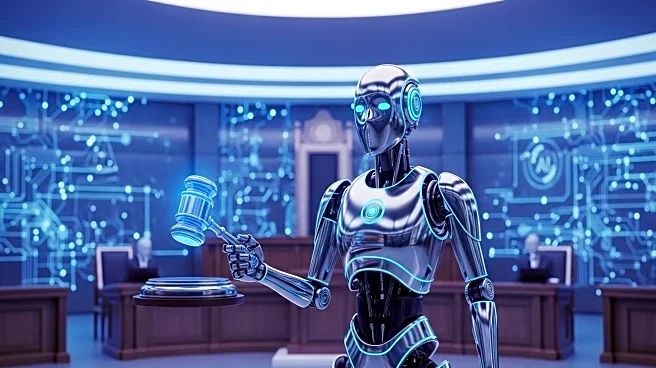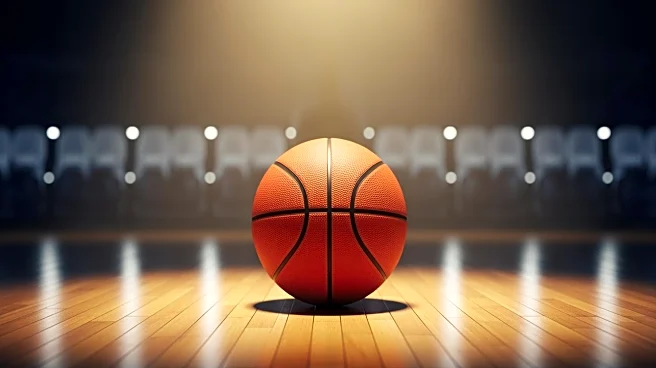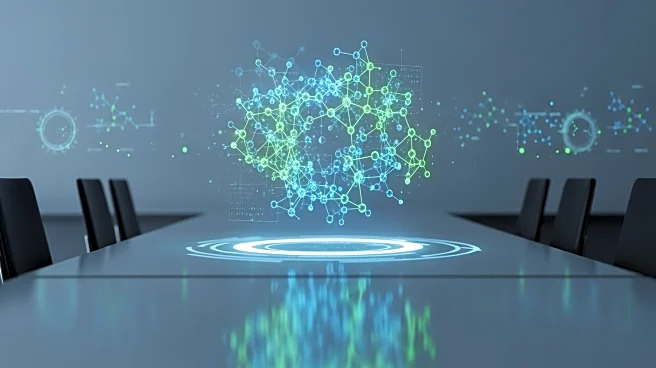What's Happening?
Warner Bros. Entertainment Inc. has filed a copyright infringement lawsuit against Midjourney Inc., an AI image generator company, alleging unauthorized reproductions of iconic characters such as Superman, Batman, and Bugs Bunny. The lawsuit claims that Midjourney's bot was trained on copyrighted content without Warner Bros.' consent, allowing users to generate images of these characters through text prompts. Filed in the US District Court for the Central District of California, the complaint seeks maximum statutory damages of up to $150,000 per infringed work and an injunction to prevent further infringement. Warner Bros. argues that Midjourney's success is partly due to its ability to generate popular, copyrighted characters, contributing to its $300 million revenue in 2024.
Why It's Important?
This lawsuit highlights the growing tension between traditional entertainment companies and AI technology firms over intellectual property rights. The outcome of this case could set a precedent for how AI-generated content is regulated and protected under copyright law. If Warner Bros. succeeds, it may lead to stricter controls on AI training processes and content moderation systems to prevent unauthorized use of copyrighted material. This could impact the business models of AI companies, potentially reducing their ability to generate popular content and affecting their revenue streams. The case also underscores the need for clear legal frameworks to address the challenges posed by AI in the creative industry.
What's Next?
The lawsuit is expected to proceed through the legal system, with potential implications for both Warner Bros. and Midjourney. If Warner Bros. wins, Midjourney may be required to implement more robust content moderation systems to prevent future copyright infringements. This could lead to changes in how AI companies operate, possibly affecting their user base and revenue. Additionally, other entertainment companies may follow suit, filing similar lawsuits to protect their intellectual property from AI-generated reproductions. The case may also prompt discussions among lawmakers and industry leaders about the need for updated copyright laws to address AI-related issues.
Beyond the Headlines
The case raises ethical questions about the use of AI in creative processes and the balance between innovation and intellectual property rights. It challenges the notion of AI as a 'copyright free-rider,' prompting debates on the responsibilities of AI developers in safeguarding copyrighted content. The lawsuit could influence cultural perceptions of AI technology, shaping public opinion on its role in the entertainment industry. Long-term, this case may drive advancements in AI moderation technologies, encouraging companies to develop systems that can effectively screen for copyrighted material while fostering creativity and innovation.









